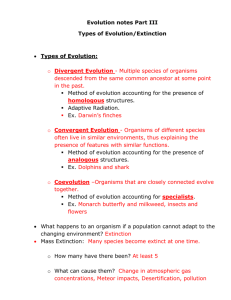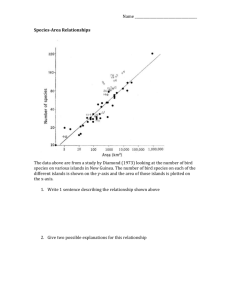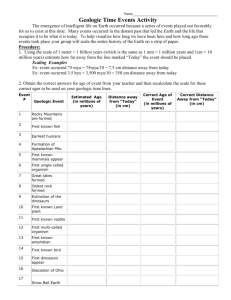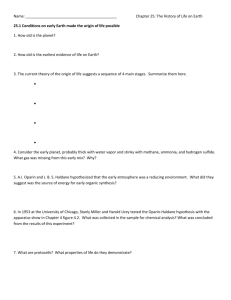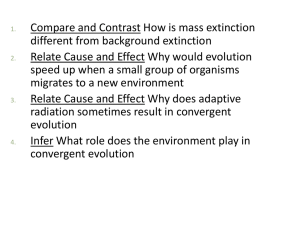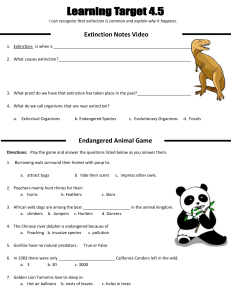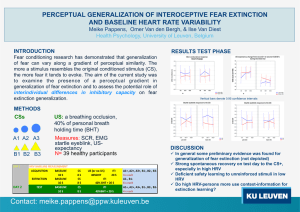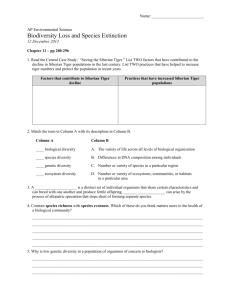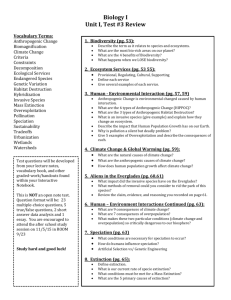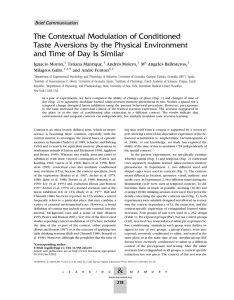What is Extinction
advertisement
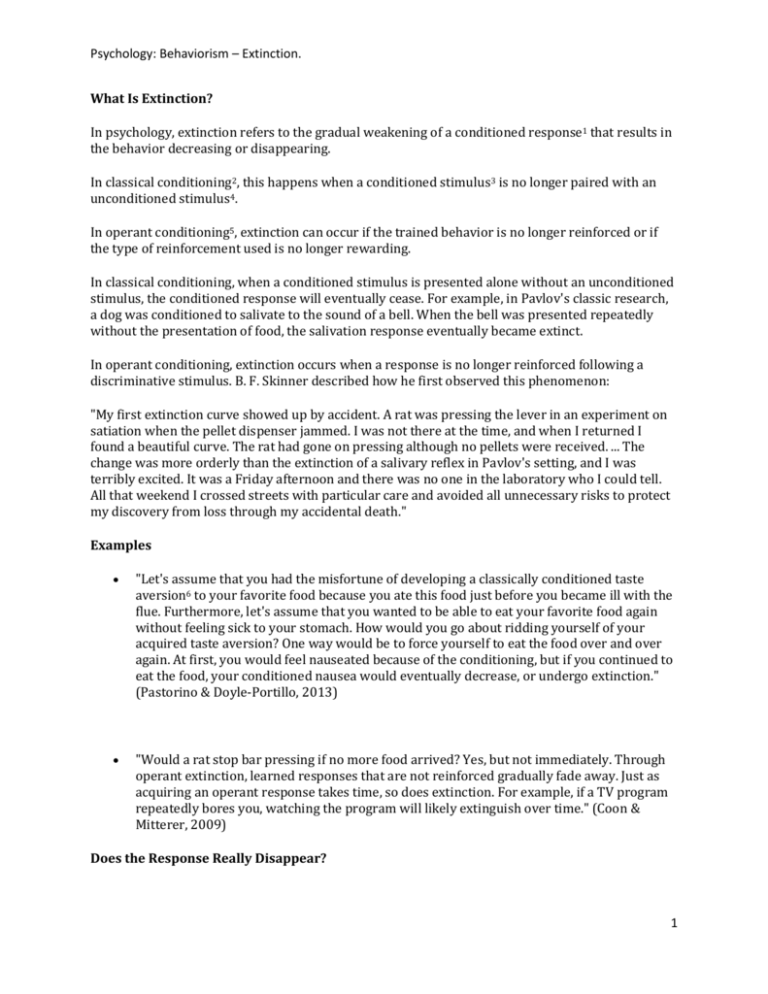
Psychology: Behaviorism – Extinction. What Is Extinction? In psychology, extinction refers to the gradual weakening of a conditioned response1 that results in the behavior decreasing or disappearing. In classical conditioning2, this happens when a conditioned stimulus3 is no longer paired with an unconditioned stimulus4. In operant conditioning5, extinction can occur if the trained behavior is no longer reinforced or if the type of reinforcement used is no longer rewarding. In classical conditioning, when a conditioned stimulus is presented alone without an unconditioned stimulus, the conditioned response will eventually cease. For example, in Pavlov's classic research, a dog was conditioned to salivate to the sound of a bell. When the bell was presented repeatedly without the presentation of food, the salivation response eventually became extinct. In operant conditioning, extinction occurs when a response is no longer reinforced following a discriminative stimulus. B. F. Skinner described how he first observed this phenomenon: "My first extinction curve showed up by accident. A rat was pressing the lever in an experiment on satiation when the pellet dispenser jammed. I was not there at the time, and when I returned I found a beautiful curve. The rat had gone on pressing although no pellets were received. ... The change was more orderly than the extinction of a salivary reflex in Pavlov's setting, and I was terribly excited. It was a Friday afternoon and there was no one in the laboratory who I could tell. All that weekend I crossed streets with particular care and avoided all unnecessary risks to protect my discovery from loss through my accidental death." Examples "Let's assume that you had the misfortune of developing a classically conditioned taste aversion6 to your favorite food because you ate this food just before you became ill with the flue. Furthermore, let's assume that you wanted to be able to eat your favorite food again without feeling sick to your stomach. How would you go about ridding yourself of your acquired taste aversion? One way would be to force yourself to eat the food over and over again. At first, you would feel nauseated because of the conditioning, but if you continued to eat the food, your conditioned nausea would eventually decrease, or undergo extinction." (Pastorino & Doyle-Portillo, 2013) "Would a rat stop bar pressing if no more food arrived? Yes, but not immediately. Through operant extinction, learned responses that are not reinforced gradually fade away. Just as acquiring an operant response takes time, so does extinction. For example, if a TV program repeatedly bores you, watching the program will likely extinguish over time." (Coon & Mitterer, 2009) Does the Response Really Disappear? 1 Psychology: Behaviorism – Extinction. In research on classical conditioning, Pavlov found that when extinction occurs, it does not mean that the subject returns to their unconditioned state. Allowing several hours or even days to elapse after a response has been extinguished can result in spontaneous recovery7 of the response. Spontaneous recovery refers to the sudden reappearance of a previously extinct response. In his research on operant conditioning, Skinner discovered that how and when a behavior is reinforced could influence how resistant it was to extinction. He found that a partial schedule of reinforcement8 (reinforcing a behavior only part of the time) helped reduce the chances of extinction. 2
